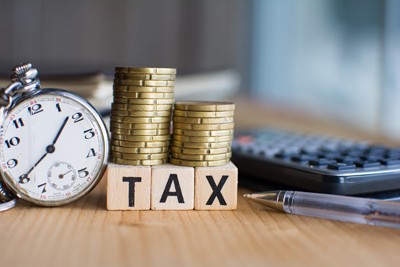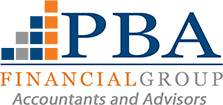Tax planning tips for 2024-2025
Plan for End-of-Financial-Year (EOFY) early

.
Waiting until June to think about EOFY planning can leave you scrambling. If this is you, then make a new financial year resolution to take a more proactive approach in 2025-26. Things to do:
- Regularly review income and expenses: Consistently monitor your financials to identify potential tax liabilities or opportunities.
- Use forecasting tools: Leverage financial forecasting tools or consult with a tax professional to plan for upcoming tax obligations and to avoid last minute surprises.
- Manage cash flow: Plan your cash flow to ensure you have funds available to meet tax obligations without disrupting your business operations.
Maximise your deductions
Ensure you claim all eligible deductions, but they must be supported by detailed records and an understanding of what you can deduct.
Work-related expenses.
Claim all necessary work-related expenses, such as tools, uniforms and home office costs.
Charitable donations.
Donations to registered charities are tax-deductible. Ensure you keep receipts and verify that the charity is registered with the ATO.
Maximise Super Contributions.
- From 1 July 2024, the general concessional contributions cap rose to $30,000 for all individuals regardless of age. It was previously $27,500.
- Many people will also have unused contribution caps from prior years, and these can provide a good opportunity for an improved tax outcome whilst boosting your superannuation at the same time. Use your MyGov account to find out more about your contribution caps or speak to your accountant or superannuation specialist.
Review Bad Debts
Review your debtor's list to determine which won’t be recoverable. Writing off the unrecovered income as a bad debt prior to the end of a financial year will provide a tax deduction for that financial year.
Please note that the debt must be genuinely bad, and not merely doubtful. The decision to write off the debt must be documented before the end of the financial year to claim the deduction.
Instant asset write-offs.
Our tax system offers instant asset write-offs for eligible business purchases. Review the current thresholds and consider investing in assets your business needs.
The limit for instant asset write-off is $20,000 and applies on a per asset basis. For more details click here.
Under this measure, small businesses with an aggregated turnover of less than $10 million will be able to:
- deduct the cost of eligible depreciating assets costing up to $20,000 that are first used or installed ready for use before 30 June 2025.
- deduct the cost of additions for assets costing less than $20,000 (if an immediate deduction for an asset under the simplified depreciation rules in a prior income year where the amount is less than $20,000).
As the $20,000 threshold under the measures applies on a per asset basis, small businesses can instantly write off multiple new assets.
Income deferral and expense prepayment.
Where feasible, defer income or prepay expenses to manage your taxable income for the financial year.
Business restructuring.
Consider whether restructuring your business into a trust or company could improve tax efficiency. Consult a professional to determine if this is right for you.
By implementing these tax planning tips, you can better manage your tax obligations in 2025. Staying proactive, organised and informed will help you minimise tax liabilities and maximise savings.
AcctWeb
